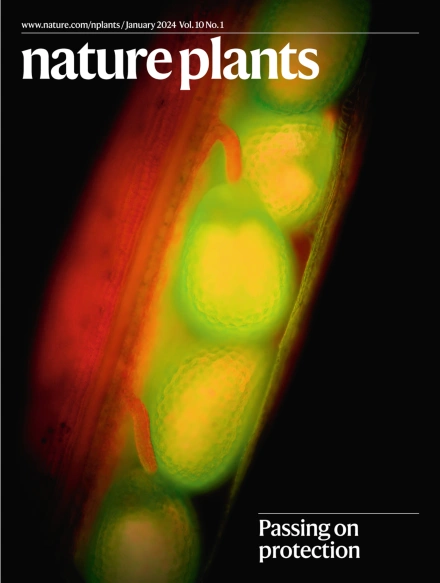冷却转座子迁移率
IF 13.6
1区 生物学
Q1 PLANT SCIENCES
引用次数: 0
摘要
不受控制的转座因子(TE)迁移可能对基因组完整性有害。为了保护它们的基因组,植物进化出了复杂的沉默机制来抑制这些可移动的元素。然而,在压力下,这些沉默机制可能会受到干扰,使基因组处于危险之中。最近的一项研究表明,在热应激下,ROS1的表达受到严格调控,以抑制TEs。本文章由计算机程序翻译,如有差异,请以英文原文为准。


Cooling down transposon mobility
Uncontrolled transposable element (TE) mobility can be deleterious to genome integrity. To protect their genomes, plants have evolved intricate silencing mechanisms that put brakes on these mobile elements. Under stress, however, these silencing mechanisms can be perturbed, putting genomes at risk. A recent study reveals that under heat stress, ROS1 expression is tightly regulated to keep TEs at bay.
求助全文
通过发布文献求助,成功后即可免费获取论文全文。
去求助
来源期刊

Nature Plants
PLANT SCIENCES-
CiteScore
25.30
自引率
2.20%
发文量
196
期刊介绍:
Nature Plants is an online-only, monthly journal publishing the best research on plants — from their evolution, development, metabolism and environmental interactions to their societal significance.
 求助内容:
求助内容: 应助结果提醒方式:
应助结果提醒方式:


